Basic Approach
The Heiwa Real Estate Group recognizes that climate change will seriously affect the natural environment and social structures, and regards it as a material issue that will have a major impact on its businesses as a whole.
As climate change intensifies, abnormal weather and rising sea levels will have serious consequences for countries around the world.This could also have a significant impact on the Group’s business activities, as the value of properties it owns could decrease due to natural disasters, and stricter environmental regulations could affect its operations.
Based on this recognition, we are making an effort to reduce greenhouse gas emissions and energy consumption while promoting the use of renewable energy and other measures.
Recognizing issues and commitments related to greenhouse gas emissions
The reduction of GHG emissions to mitigate climate change is one of the most important global environmental issues. In Japan, companies and offices (buildings) are required to calculate GHG emissions in accordance with the Act on Promotion of Global Warming Countermeasures, reduce total emissions in line with Tokyo Metropolitan Government regulations, and submit plans and reports on global warming countermeasures.
As society as a whole undergoes the transformation toward low-carbon and decarbonization, taking the initiative in reducing GHG emissions is also expected to lead to financial benefits, such as business differentiation, enhanced preference from prime tenants, and increased financing opportunities from ESG investors.
In light of these issues, the Group will appropriately monitor and manage GHG emissions from real estate management, while promoting GHG emission reductions beyond legal compliance levels through various GHG emission reduction measures.
Recognizing issues and commitments related to energy consumption
Inefficient energy consumption leads to the waste of global environmental resources and excessive greenhouse gases emissions, which have negative impacts on the global environment, while also increasing the cost of energy and regulatory compliance, and can become factors that deteriorate the economic value of real estate.
Conversely, the efficient use (conservation) of energy in real estate protects the global environment and the mitigates climate change. Efficient energy consumption can also be expected to result in reduced operating costs, lower regulatory risks, and increased financial benefits, such as improved real estate value over the medium to long-term, which in turn can lead to business opportunities.
Based on our recognition of these issues, the Group will promote the efficient use of energy above and beyond statutory compliance requirements by appropriately monitoring and managing energy consumption within Group real estate operations while implementing various energy conservation measures.
Support for TCFD recommendations
Many corporate stakeholders, particularly investors, are aware that climate change poses systemic risks to the financial performance of companies today, and therefore, they expect companies to disclose information concerning climate related risks and opportunities. In response to this trend, Heiwa Real Estate announced its support for the recommendations of the Task Force on Climate-related Financial Disclosures* (TCFD) in December 2021.
Based on the TCFD recommendations, which were finalized in 2017, the Company will identify, assess, and manage climate-related risks and opportunities that could impact the Group’s business and enhance its information disclosure accordingly, recognizing that improving the resilience of its operations is essential for continuously and stably generating earnings over the long term.
* The Task Force on Climate-Related Financial Disclosures (TCFD) was established by the Financial Stability Board at the request of the G20 to recommend a framework for the disclosure of climate-related information.
Initiative Targets and Results
Initiative targets
The Group set the long-term target of achieving net zero by FY2050, the medium-term target of an 80% reduction in GHG emissions by FY2025 (total volume target compared to FY2018 level), and the short-term target of annual reductions of at least 1% (basic unit target compared to previous fiscal year).
We also aim to achieve a 100% environmental certification acquisition rate for newly developed properties.(*1)
Notes:
- Prior to FY2021, the scope of calculation is the real estate portfolio held by the Group (excluding buildings designated to be sold and jointly owned buildings of which the Company has an >ownership share of less than 25%).
In FY2022, the scope of calculation is the real estate portfolio held by the Group (excluding inventories).
- Short- and medium-term targets cover Scope 1+2, while long-term targets cover Scope 1+2+3.
Scope 1: Direct greenhouse gas emissions directly from sources owned or controlled by business operators.
Scope 2: Indirect greenhouse gas emissions from the use of electricity, steam and heat.
Scope 3: Greenhouse gas emissions from supply chains
- Environmental certifications include DBJ Green Building Certification and CASBEE construction; applicable properties include offices and commercial buildings (excluding small properties).
Results
GHG emissions and energy consumption
ESG Data
Specific Initiatives
Initiatives by affiliated industry associations
The Heiwa Real Estate Group complies with the Paris Agreement, an international framework for the reduction of greenhouse gas emissions, as well as the policies of industry associations to which we belong, and will reduce Group greenhouse gas emissions and energy consumption while promoting the use of renewable energy. In the event that the polices of these affiliated industry associations are strengthened and Group efforts become insufficient, we will further revise internal polices to proactively promote climate change countermeasures. The Heiwa Real Estate Group participates in and endorses the following climate change-related frameworks.
TCFD Recommendations and the TCFD Consortium
The Heiwa Real Estate Group announced its endorsement of recommendations set forth by the Task Force on Climate-Related Financial Disclosures (TCFD), established by the Financial Stability Board (FSB). We also participate in the TCFD Consortium, which was established to promote initiatives conducted jointly by Japanese corporations and financial institutions that endorse the TCFD recommendations.
Science Based Targets
With the aim of realizing a decarbonized society, in October 2021, Heiwa Real Estate set a new target calling for a 50% reduction in overall Group greenhouse gas (GHG) emissions (Scope 1 + 2) compared to FY2018 by FY2030. This target was recently certified by the SBT Initiative as consistent with the level (1.5°C) targeted by the Paris Agreement.
Subsequently, to further promote decarbonisation efforts, the new target has been set for the medium-term target of an 80% reduction in Scope 1+2 compared to FY2018 by FY2025 (on a total volume basis) and a long-term target of achieving net zero by FY2050.
Going forward, the Group will further strengthen decarbonization initiatives in an effort to realize a sustainable society and continuously enhance corporate value as a company that contributes to revitalizing districts.
UN Global Compact and Global Compact Network Japan
The Heiwa Real Estate Group is a member of the United Nations Global Compact (UNGC), as well as the Global Compact Network Japan (GCNJ), a local network in Japan.
We support the UNGC, comprising human rights, labor, environment and anti-corruption, and will strive to realize a sustainable society.
GCNJ activities also include the exchange of information on CSR concepts and initiatives through participation in the Environmental Management Subcommittee among other bodies. Heiwa Real Estate aims to further contribute to the realization of a sustainable society by participating in information sharing and dialogues with experts, NGOs and other organizations.
Regarding switchover to renewable energy sources
From May 2021, electricity used at Company-owned properties, including the Nisshokan Building, which houses the Company’s head office (Chuo-ku, Tokyo), were gradually switched to electricity derived from renewable
energy sources. This is expected to result in the use of approximately 60 GWh of renewable energy per year and a reduction in CO2 emissions equivalent to approximately 27,000 tons per year.
Reducing environmental impact
To address environmental concerns (reduce energy use), Heiwa Real Estate's initiatives focus on resources (reducing costs).
Because office buildings require large amounts of energy to run, they are increasingly expected to offer high environmental performance. The Group gives top priority to the environment when constructing and renovating buildings, and also take steps to create a more attractive cityscape. Our approach helps to reduce the life-cycle cost of buildings through long-term use and to preserve historical value.
①Tokyo Stock Exchange Bldg.
- Saving energy by controlling power and air conditioning equipment (total 8,500 units) of the building management system
- Reducing heat load by controlling operation through total heat exchangers and controlling by outside air cooling
- Reducing motor energy consumption with variable air volume control using inverters
- Controlling waste heat recovery with heat-recovery turbo freezers
- Rooftop greening, solar heating, and utilization of rainwater
- Open spaces secured and greenery maintained in open spaces surrounding the building in consideration of the scenery
- Utility poles have been removed by burying power cables
- Installing of streetlights
②Osaka Securities Exchange Bldg.
- Saving energy by controlling power and air conditioning equipment (total 8,500 units) of the building management system
* The market wing of the old Osaka Securities Exchange Bldg., completed in 1935, was for decades a Kitahama landmark beloved by the people of Osaka. A part of the entrance hall on the first floor has been preserved in its original form as part of the city’s cultural heritage.
Various events are now held in the hall, which caters not only to the building’s users but also to visitors and the people of Osaka at large.
- Smart meters installed
③CentRise Sakae
- Exterior Blind System
- Automatic Adjustment of Blind Slats
- Installation of Window Eaves
- Double-pane low-emissivity glass installed
- Effective Use of Rain and Well Water
- Lighting Control by Daylight Sensors
- Smart meters installed
④Ichiban-cho Heiwa Bldg.
- LED lighting installed throughout the building (excluding some lighting in stores)
- Lights changed to longer lasting lights
- Use of high-efficiency air conditioning
- Double-pane thermal insulating low-emissivity windows installed
- Smart meters installed
⑤KABUTO ONE
- Solar panels to be installed as an initiative to use renewable energy
- Rainwater storage tanks to be installed as a means to reuse rainwater for everyday facility use (non-drinking water)
- LED lighting and control systems as well as high-efficiency devices to be installed to efficiently use energy
- Greenery to cover 40% of the entire redevelopment site as a measure to combat the heat island effect
- Smart meters installed

Environmental ratings by outside bodies
When constructing new buildings and conducting major renovation projects, the Group gives top priority to the environment; hence we have received high ratings from the DBJ Green Building Certification program and CASBEE.
DBJ Green Building Certification
A certification program established by the Development Bank of Japan (DBJ) to support Green Building, which refers to real estate properties developed with consideration for the environment and society. The evaluation is comprehensive, taking into account not only the property’s environmental performance but also responses to a wide range of stakeholders, including disaster resilience and community considerations. In this way, the program evaluates and certifies real estate that meets the needs of society and the economy.
★★★★★
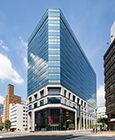
KABUTO ONE

Caption by Hyatt Kabutocho Tokyo
★★★★
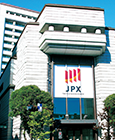
Tokyo Stock Exchange Bldg.
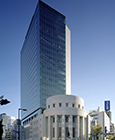
Osaka Securities Exchange Bldg.

Mita Heiwa Bldg.
★★★
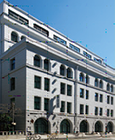
Nisshokan Bldg.
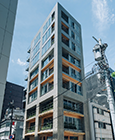
KITOKI
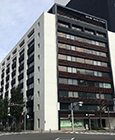
Heiwa Real Estate Nagoya Fushimi Building

Kabutocho Heiwa Bldg.

Kabutocho Heiwa Bldg. No.2

Heiwa Real Estate Nihonbashi Bldg.
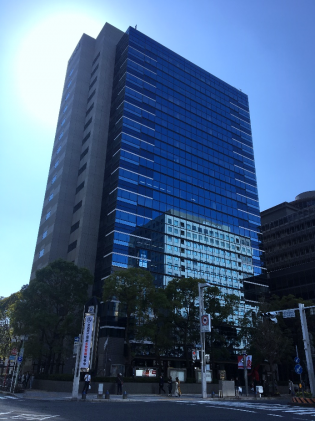
Sakae Sun City Bldg.
★★
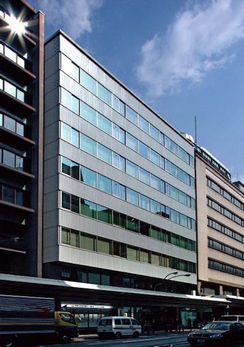
Kyoto Shoken Bldg.
CASBEE
A method for evaluating and rating the environmental performance of buildings. This program comprehensively assesses building quality, including eco-friendliness (such as energy efficiency and use of materials and fixtures with a small environmental footprint), interior comfort, and respect for the surrounding landscape.
Rank S
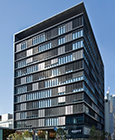
CentRise Sakae
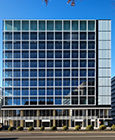
Ichibancho Heiwa Building

Kabutocho Heiwa Building No. 1
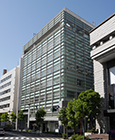
Kabutocho Heiwa Building No. 6
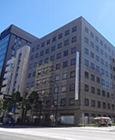
Kayabacho Broad Square

Uchisaiwaicho Heiwa Bldg.

Osaka Heiwa Bldg.

Solala Plaza

Heiwa Real Estate Sapporo Station East Bldg.

Heiwa Real Estate Nagoya Fushimi Bldg.
Rank A
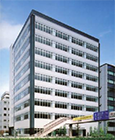
Shimbashi Square Building
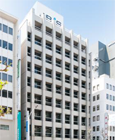
Kayabacho 1-Chome Heiwa Building
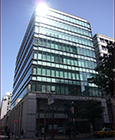
Tenjin Heiwa Building
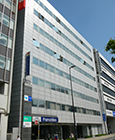
Park East Sapporo
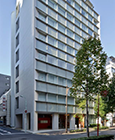
Kabutocho Heiwa Building No. 4
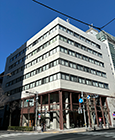
Kabutocho Heiwa Building No. 7
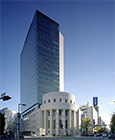
Osaka Securities Exchange Bldg.
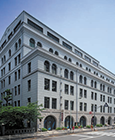
Nisshokan Building
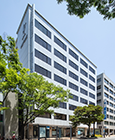
Fukuoka Shoken
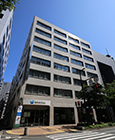
Fukuoka Heiwa
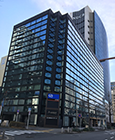
Heiwa Real Estate Sakuradori Building

Osaka Midosuji Bldg.

Isemachi Heiwa Bldg.

The Nagoya Stock Exchange Bldg.
BELS
Building energy conservation performance indication system aimed at ensuring that third-party organizations carry out the evaluation and indication of the energy conservation performance of non-residential buildings in an appropriate manner.
★★★★★

ORSUS Togoshiginza
(acquisition of ZEH-M Oriented certification)

SAPPORO ONE
(acquisition of ZEB Oriented certification)
★★★★

KABUTO ONE